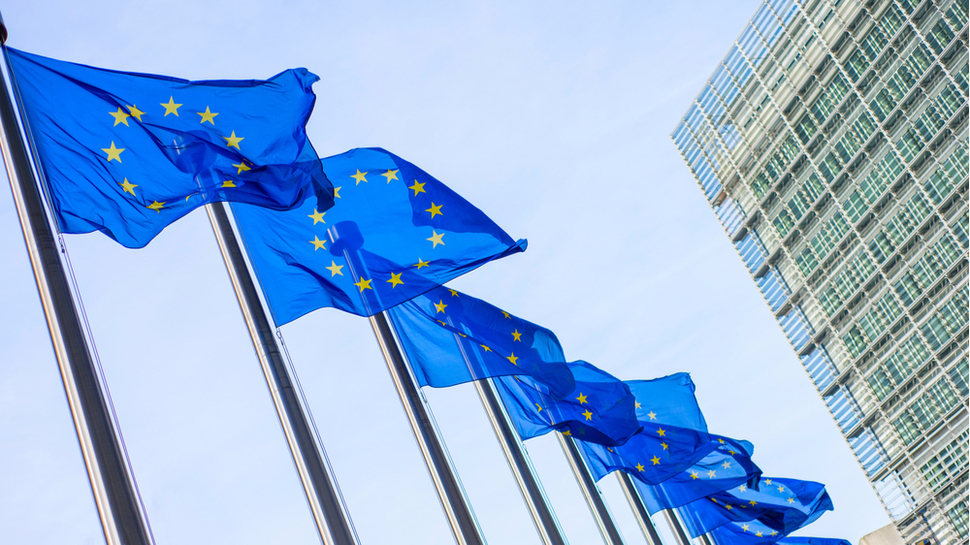There’s no telling if that hasn’t already happened. Europe needs to drop Microsoft ASAP.
Microsoft said this, but this likely applies to AWS and GCP too.
Check out Hetzner, a German cloud provider. Established, reliable and way cheaper than AWS.
I know migrating is nigh impossible for most large apps, but creating a new one on AWS/GCP/Azure is so shortsighted.
More people need to know about alternatives.
Hetzner is really trashy though. They seem to suspend or permanently ban folks for no good reason.
Damn, they really go the extra mile for a full equivalent to googles offering.
Right?? Like some shit doesn’t have to be part of the competition…
Hetzner and reliable do not belong in the same sentence.
Cheap yes, reliable no.
I’ve been using them for my company a lot because of how cheap they are, but compared to other European competitors (like OVH) they are complete garbage. Their pricing is the only redeeming factor.
The Schwartz Group (parent company of Lidl) is currently building a German cloud platform, which sounds a lot more promising.
Lidl Web Services
Their storage for servers at least is stupidly expensive.
There is also OTC https://www.open-telekom-cloud.com/en
Color me skeptical of anything Deutsche Telekom. I’d rather look at OVH, Hetzner, and Scaleway than at something from Telekom.
And OCI. Any US based company is subject to the CLOUD act.
EuropeEveryone needs to drop Microsoft ASAPFTFY
Canada, too. For the last two years, Canada has entrusted sensitive statistical information to Microsoft. We should be treating MS with the same skepticism we currently reserve for Huawei.
Germany and a handful of other countries have been moving to Linux over the past decade. Betting the rate of uptick speeds up now though.
Anyone wonder where your country’s health records about all their citizens are stored? I’m guessing it’s all on either MS, AWS, or Google. That means Trump could get access to your medical history.
This is important because of his attacks on LGBTQ people, vaccines, abortion, autism, and who knows what other nonsense he wants to persecute.
And here in Canada the Liberal government is putting forth bill C-2, which opens up even more access to the US to get even records stored in Canada by Canadian companies.
https://www.eff.org/deeplinks/2025/07/canadas-bill-c-2-opens-floodgates-us-surveillance
Feel safe yet?
I am from the Netherlands and work at a hospital, we exclusively use Microsoft software.
Here in Italy all family doctors use Gmail for safety data regularly
Damn. That’s a fucking paradox if I’ve ever seen one.
Only if they aren’t using customer provided encryption keys (is using blob/bucket storage) or an equivalent approach to encryption at rest, and make sure they’re doing standard TLS for encryption in flight.
It’s absolutely possible, and standard for any decent organization, to build their cloud architectures to fully account for the cloud provider potentially accessing your data without authorization. I’ve personally had such design conversations multiple times.
It is possible to do things correctly. The question is, is it done often, and is it done on hardware you can trust. I’m somewhat confident if I run my services on bare metal, the provider would have a hard time getting my encryption keys, although it’s not impossible even in this situation. How many people do so with VPS and managed instances, where snooping around the runtime and exfiltrating data unbeknownst to the user is trivial?
Also, beyond that, how many fall for the convenience of things like SSE, whether it’s with customer provided keys or not? That should be a red flag, but people find it oh so convenient.
We’re bound to see stuff bubble out where “we did all the right things” boils down to clicking a checkbox in some web UI and be done with it in the future.
In the case of Germany: confidential computing tech ensures all data is encrypted in storage and in memory, shielded even against data center employees / hosting providers. I imagine that’s become the standard for most countries.
Hmm. Policies might say so. Not every business follow policies, whether they are their own or imposed ones, though. Business going all “it’s ok, our provider have the correct certifications for data handling” are definitely a thing.
Most EU countries are single payer healthcare. Businesses develop the software, but it’s vetted by a government entity before acceptance.
Again for Germany, it’s handled by a single provider, and they absolutely do utilize CoCo tech. (Source: I work at one of the involved companies, sorry, not going to be more specific)
Actually it’s all in Palantir, so we’re totally safe with this non-villain coded company.
So how are American companies any different then Chinese? Everyone always says Chinese companies have to listen to their government. Never got how American companies would be any different.
They’re not different at all - the CLOUD Act (2018) and FISA courts already gave the US govt near-complete access to American tech companies’ data regarldess of where it’s physically stored, we just don’t talk about it as much as we do with China.
One is Chinese (bad, stinky) one is American (good, freedom).
Both are authoritarian shitholes that violate the freedoms of its citizens.
Time to listen to this banger again
Until this abomination of a law, the US was different. But the GOP is quickly adopting every fascist idea they come across.
Until this abomination of a law, the US was different.
Press X to doubt.
It’s like he selectively forgot about the Snowden leaks
No they werent lmfaooo
Until this abomination of a law
The “patriot” act would like to have a word with you…
People keep forgetting that.
Is this still earth 50? Because Luthor is still president (with an orange tan and a toupé).
Can EU please make an open source phone?
We have linux for computers, but we need a “linux” for phones (yes I know Android uses Linux Kernel, I’m talking about like a Libre Non-Google OS)
I have another question: why do some eras seem to be so free for technology to evolve and open to new entrants to create their designs and mods and why do other eras feel like traps set by investors and enclosures for consumers? The 80s/90s felt great for technology, but today it feels like they all want to take anyone’s capacity to do anything beyond being a dumb paying consumer away…like they’re covering all possible outcomes to come out enslaving everyone. Why didn’t they do that in the 80s/90s? Am I looking at the past with rose-tinted glasses?
I’m holding my breath for the pinephone to be ready for primetime. I check in on it every so often to see what the current buzz is.
U have several fork of android some are great. The issue is I need google service for a lot of proprietary app like uber, banking app etc. Linux phone exist but without an appstore it s useless
That’s kind of the point. The EU could theoretically demand some Linux support from banks. It wouldn’t be a popular decision at first, but the consumer protection agency is capable of that, banks are capable of that, and it would help a lot.
I don’t think it would happen, it’s cheaper for banks to lobby against it than do a bare minimum, lobbying is cheaper than anything, but still, neat idea.
Does Graphene OS fit that description?
It only works on Google Pixel phones.
There are other operating systems, and some more open (but more expensive) manufacturers like Fairphone and PinePhone.
Thank you for answering my question.
I thought gdpr forced companies to store data securely in the eu. Are they saying they’ll transfer that data to the us to give Trump access, cause that’s a gdpr violation and should result in fines and eventual removal from the eu market.
The CLOUD act and GDPR do indeed not work together.
The first sentence and the first paragraph of the article:
even if that data is stored overseas
and should result in fines
Hahaha should
There are provisions. I don’t remember the exact name of it, but basically, the US says “yah, these business are legit ok, you see?” and the EU is like “oh, ok, deal”. This includes the big providers and a handful of others, obviously.
And yes, it is a farce.
It’s still on their servers. They just give government access to data.
Does this also mean Microsoft would allow China to spy on the US if asked?
My assumption for many years now has been that the answer to any question involving MS giving access to your data is “yes.”
deleted by creator
If the EU doesn’t combine forces to get out of this tech-dependency, than what do we have the EU for? I am a big fan the EU, it’s doing many things for us already, but I’m really hoping we can work our way out of this together, and I hope we choose the FOSS-route so that we significantly help the world forward
I think our problem is a mix of corruption and tech illiteracy in the European parliament. People are either too deep in the pockets of silicon valley, or they are lazy fucks who don’t understand anything about computers and are unwilling to learn, so they keep believing “Windows is easier”.
I have been saying this for more than a decade. Shit like this is why privacy laws and stuff regarding warrants and other stuff need to be expanded to private entities as much, if not more so, than government agencies. In the past the idea of a company having that much access to people’s information was unthinkable, and in almost everyone’s mind it was governments we needed to be worried about.
But that hasn’t been true since the 90s at least with credit cards being used for most stuff and internet purchases being the norm for almost everything.
Governments in the past needed something to ask for permission to look into you… but companies never did, and since the only thing governments need to do is either buy it or ask nicely it makes many protections kinda moot. The fact that many countries want a strict surveillance state over everyone means even the classic protections we had for a brief while are disappearing, too.
If there ever is a 2nd enlightenment with protections for people it needs to make the stuff written in the 18th and 19th century look like children’s toys in comparison.
If you say ‘but what about terrorism and bad people?’ Look around you. They still exist and still rarely get caught unless they fuck up badly. Most of the time it still due to informants and people talking to authorities. In the US the murder rate resolution is only 50% (and that is just arrested and charged, not convicted) and this is because there is a massive distrust of the police. In other countries people are more likely to assist the police and/or they take their jobs far more seriously in terms of forensics… and on top of that they usually have a far lower murder rate which allows more time and resources to be funneled into solving major crimes.
Better to let 100 guilty men go than 1 innocent person convicted is the usual motto, but they don’t believe that in practice. In reality they are very much kill them all and let God sort out his own. And we can’t keep allowing that shit to happen.
It’s weird that this was something that Microsoft would have to admit, considering “The CLOUD Act” has made this mandatory for all US based companies anywhere they operate in the world. This has been a law since 2018.
I mean. They’re a USA company. Of course they would be required to follow the laws of the country in which they HQ. Did anyone think anything different?
This is what data sovereignty is for.
Well pretty sure local laws here say that certain data should stay within the countries borders (like data from accounting firms) so I hope they also encrypted everything to prevent this carrot from accessing it.
It’s encrypted, I’m sure. But I highly doubt it’s e2ee. It’s likely as the eula alludes to (end to server to end). So… accessible by MS.
Their EULA can’t break our national law, so it can still be e2e encrypted and not accessible by MS
While true, in the past, MS has shown us they don’t care about national laws. I’m not saying they don’t e2ee, I’m saying they might not be following this particular national law due to their own national laws. I don’t know.
The party in between MS/Sharepoint and our laptops can E2E encrypt everything I am pretty sure, but yes you are right.
Can, would, should. All words to define "not sure if ‘is’.
So we all agree that “if demanded” ANYONE’S data can be spied on. Doesn’t matter where.
At least it’s finally admitted to out in the open.
How is that news? The CLOUD Act is law since 2018.
I’m guessing the admits part and of course Trump is the current (quite jutified) bogeyman.
Continuing to do business in the US after the CLOUD act already implied enough.
Didn’t Microsoft say not too long ago not to worry, because they didn’t have to give access to data?
YEAR OF THE LINUX DESKTOP, LETS GOOOOOOOO!
well… there is self-hosting too
suck my arch btw
















